The subject of noisy heat pumps comes up quite often. People often ask us are air source heat pumps noisy, so we thought we’d write an article to share our thoughts on the matter.
Chances are you’ve been searching around on the internet looking for videos so that you can try and understand exactly what type of noise is generated by heat pumps and also how loud the noise is.
However, the difficulty with doing that is that it depends on the quality of the recording equipment used and who is producing the video. Also, listening through a laptop speaker is not going to give you a full impression of exactly how loud a heat pump is.
Despite these technical difficulties, one clever chap on YouTube came up with an ingenious way of demonstrating just how quiet heat pumps can be. What he did was actually place his camera, which was recording him at the time, on top of a recently installed air source heat pump which was running.
He didn’t reveal this until halfway through the video and, to be honest, most viewers would have had no idea whatsoever that the camera recording him was sitting on top of a running heat pump. I certainly didn’t and I was listening on my high-quality headphones.
I think this is one of the best demonstrations of just how quiet these systems can be. After all, when YouTubers are recording videos they often have a lot of background noise so the fact that this chap was able to record a video that apparently had no background noise whatsoever using a camera mounted on top of a running heat pump shows just how quiet they can be.
Although you might be able to hear a heat pump in a very quiet countryside area, if you live in an urban area with lots of traffic noise in the background anyway you probably won’t hear the heat pump running unless you’re really straining to listen for it.
Table of Contents
Why do heat pumps make noise?
Now we’ve established that air source heat pumps can run quite quietly, it’s worth understanding why under certain circumstances heat pumps can contribute significantly to background noise.
Let’s first remind ourselves what a heat pump is. In simple terms it is a refrigerator operating in reverse. The heat pump takes heat from outside the building, concentrates it using the refrigeration cycle and emits the heat into the inside of the building. The fridge in your kitchen does the opposite by removing heat from inside the appliance and radiating it into the room.
Understanding that a heat pump uses the same technology as a fridge helps put any noise issues in context. We’re all used to the gentle hum of our refrigerators in our kitchens and tend not to notice this. When we do occasionally notice it, it doesn’t bother us because we know the fridge is working hard to keep our food cool and safe to eat.
When a heat pump makes a similar noise, it is working to provide warm air and keep our homes comfortable and our families warm. Usually the noise level is very low indeed as illustrated by the YouTube video above. However, when the noise becomes significant it is often due to one of the following reasons.
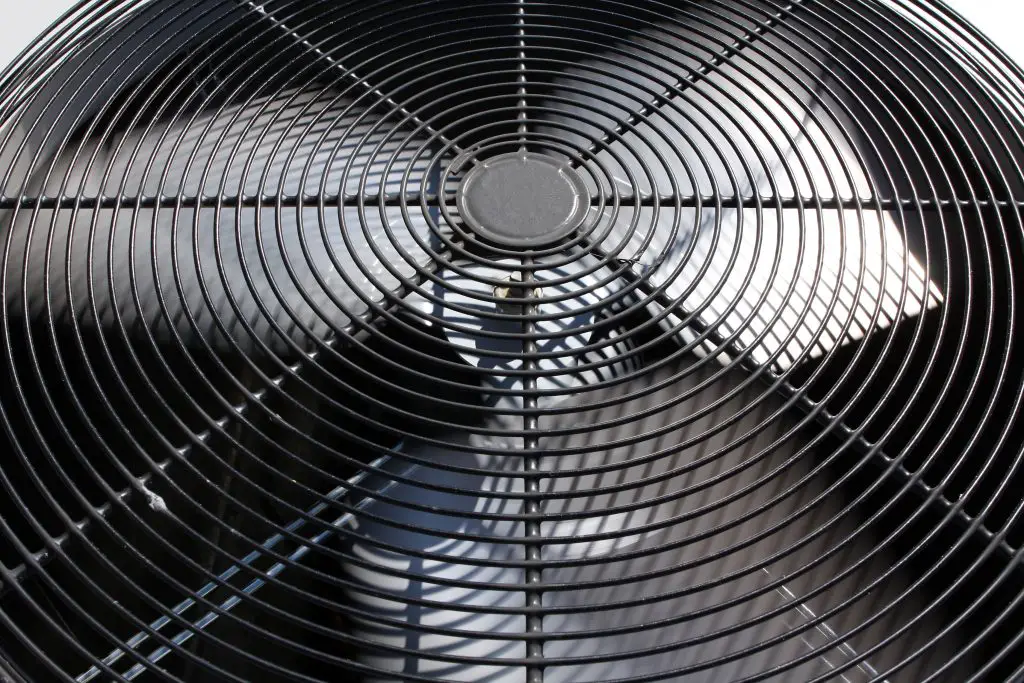
Common Reasons Your Heat Pump Could be Making a Loud Noise
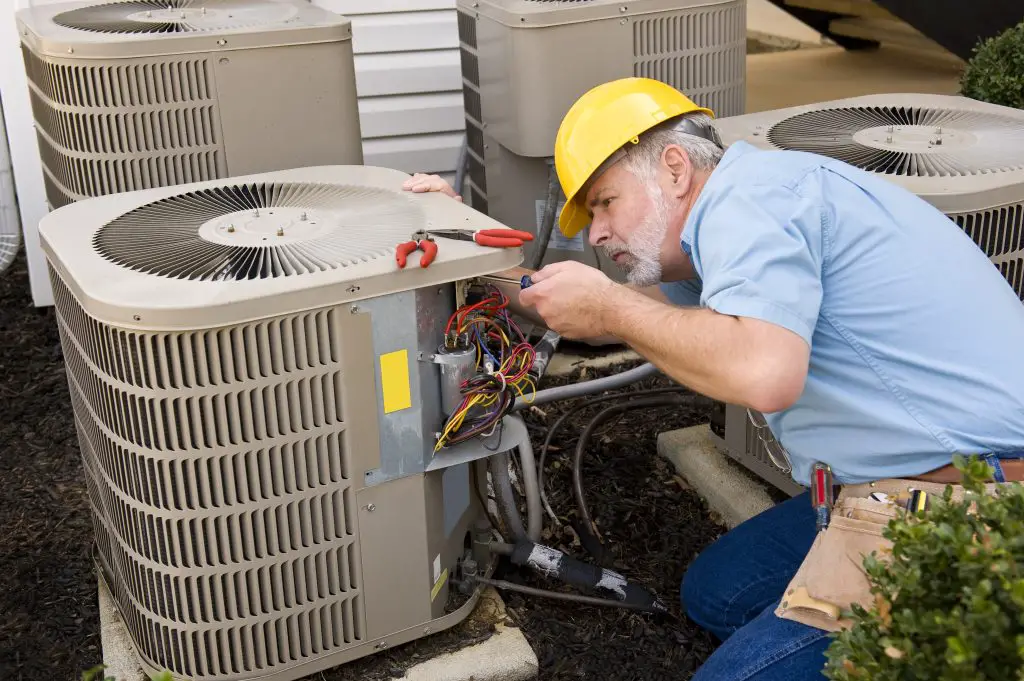
- Worn or loose parts on the Outdoor Unit – If there’s a noise coming from the outdoor unit, such as a buzzing noise or a popping sound, it could be that there is a faulty part which needs to be replaced. Sometimes the compressor can make a noise and loose parts can create rattling, vibrating and buzzing noises. This can happen from time to time on the fan itself. If the motor is beginning to fail this can cause buzz and vibration. Occasionally, you might hear a whooshing or hissing noise, which might be caused by a valve malfunctioning or perhaps the solenoid. Any of these noises are signs that your unit needs the attention of a suitably qualified technician and you should find one right away before the problem gets any worse.
- Interior air handler – Ticking sounds coming from your indoor unit can indicate there is damage to the fan itself, one of the belts or perhaps a piston or shaft. Buzzing or rattling can be a symptom of a problem caused by a refrigerant leak. Any kind of refrigerant leak needs to be fixed quickly because refrigerant can be harmful to the health of humans and pets. Any loud noises coming from your system could be a result of ageing or even being incorrectly installed in the first place.
- Ducting Noises – problems with ductwork can be a result of improper installation or due do damage over time. Creaking and popping coming from a duct often suggests a lack of vibration damping and whistling sounds from within the duct itself can indicate improper sealing, often as a result of damage. This type of problem can be tricky to track down so it’s worth bringing in a qualified technician to assess the problem.
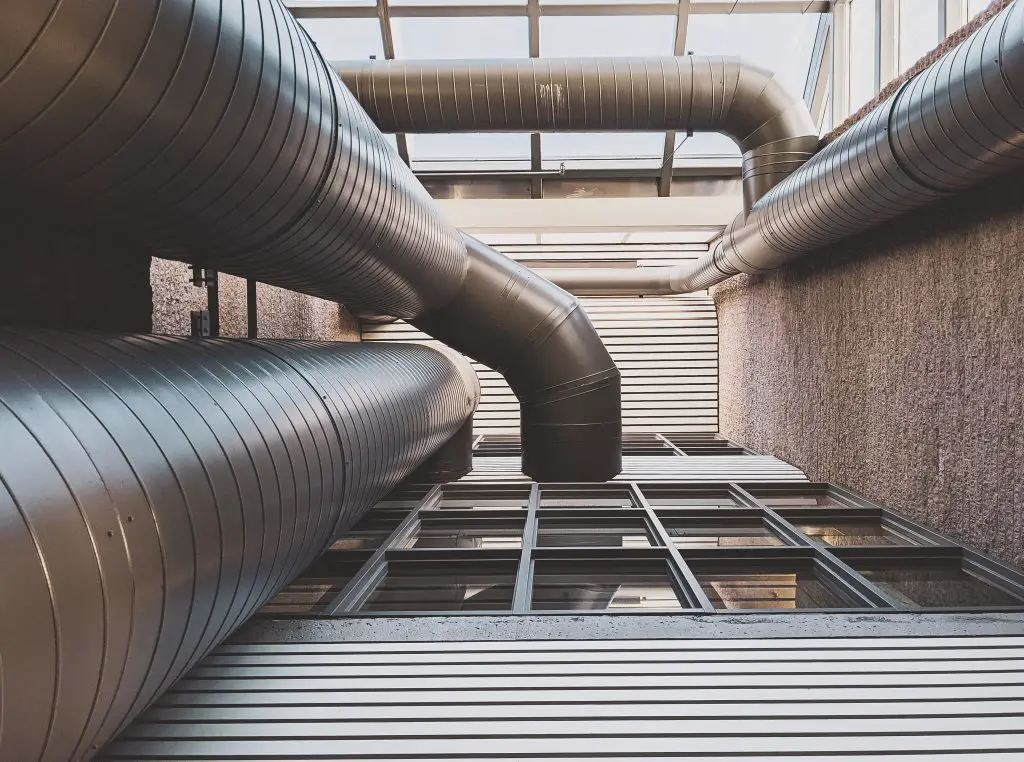
Why is my air source heat pump so noisy?
Well, as we talked about so far, your heat pump really shouldn’t be noisy provided it’s been properly installed and maintained. And that brings us to perhaps the most fundamental factor that can affect the perception of noise from heat pumps – the question of where your heat pump is installed.
Poor positioning
If your heat pump is one of the noisier models, the difference between sleepless nights due to the whirring of the fan and being blissfully unaware of its existence, as far as the noise it makes, might simply come down to where it is installed.
On a tight plot, heat pumps might have to be positioned very close to the dwelling house, perhaps even right outside the bedroom window. If this is the case, particularly if one likes to sleep with the window open, the noise generated by even a relatively quiet heat pump might be disturbing.
However, if there is plenty of space in the garden, the heat pump can be installed well away from bedrooms, which means an uninterrupted night’s sleep is not an issue – at least not as far as heat pump noise is concerned.
How Do I Stop My Heat Pump from Making Noise?
If you are stuck with the problem of a noisy heat pump, whether that’s your own heat pump installed directly outside your bedroom window, or your neighbour’s heat pump which is just a bit too close for comfort, there are ways that you can reduce the amount of disturbance but you have to put up with.
Better Maintenance
If the issue is due to poor installation or lack of maintenance, a visit from an HVAC technician might solve the problem straight away. I’d certainly recommend bringing in a professional rather than trying to follow a DIY guide on the internet. Even if it’s not your unit, a friendly chat with your neighbour about their noisy heat pump might be enough to convince them to call someone out to investigate and fix the problem.
However, if the noise is due to poor choice of location, this can be a bit more problematic and calls for alternative remedial measures.
And that’s where heat pump enclosures come in.
Heat Pump Enclosures
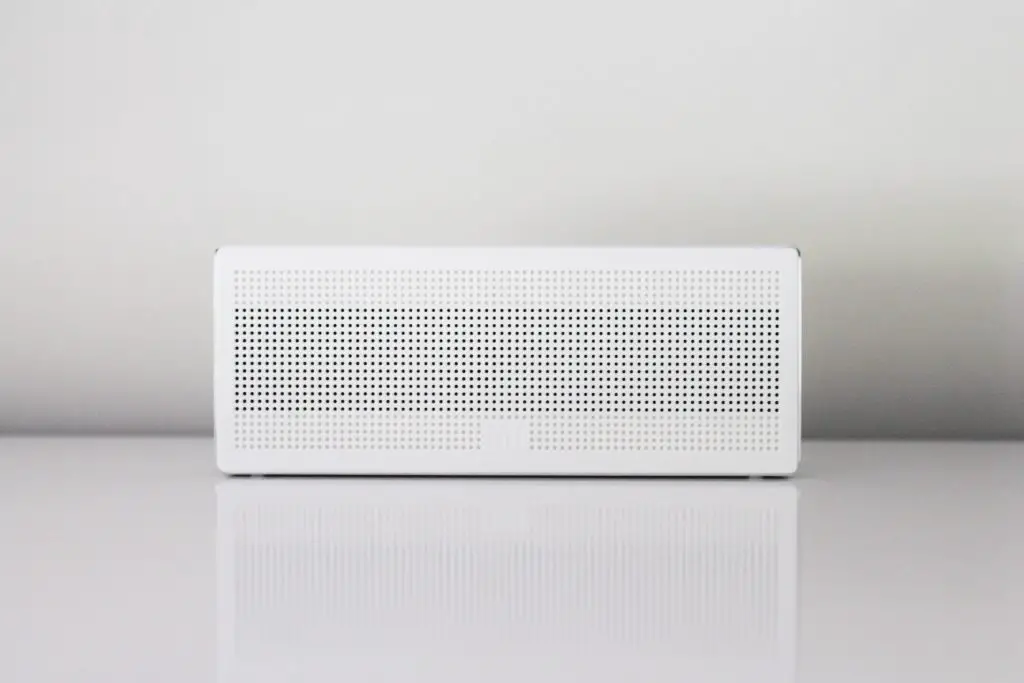
A good way to mitigate heat pump noise is with a heat pump enclosure. They cut down on the noise generated by a heat pump by providing a physical barrier which prevents the noise being carried any significant distance.
Heat pump enclosures are available in a range of materials and designs to fit most settings. Some manufacturers state that having an enclosure will reduce noise by up to 13 dBA, which could make the difference between the noise level of a normal conversation the sound level of a whisper. If the noise is quite quiet but nevertheless disturbing to someone, an enclosure could make enough difference that they will no longer hear it at all.
Some people might be tempted to make their own enclosures but it’s a better idea to buy a proper one, which is likely to give you a better result because a professionally designed enclosure will ensure the sound is mitigated without impacting the performance of the heat pump itself.
Are All Heat Pumps Noisy?
As shown in the YouTube video above, not all heat pumps are noisy. Indeed, if they are positioned correctly, properly installed and adequately maintained, they will give loyal service without disturbing you whatsoever.
The level of noise produced by your heat pump is likely to increase slightly over time as parts wear out and the hours of operation take their toll. But in most cases, this is not something that you would need to worry unduly about and shouldn’t put you off installing a heat pump.
Unless your heat pump is installed very close to the room you sleep in or very close to your neighbour’s house, you shouldn’t worry too much about the noise that it might generate. Do your research, take good advice and make sure you have your heat pump installed by a reputable professional and noise should not be an issue, even in the depths of winter.
Which Are The Quietest Air Source Heat Pumps?
Mitsubishi Ecodan are one of the most recognised heat pump brands available. They are a well-respected brand and have done a great job of tapping into the market for heat pumps in the UK, with many installers choosing to recommend them to customers.
Other brands are available, though and it’s important for you to be aware of the range of products that are out there so that you can make an informed decision.
Typically, the level of noise emitted by a heat pump will be between 40 and 60 decibels, this is approximately in the range of the loudness of normal conversation. Generally, you won’t be able to hear the heat pump above background traffic noise so if you live on a busy street, noise really shouldn’t be an issue for you.
Even if you can hear some noise from the heat pump it shouldn’t be more than a low whirring noise from the fan and compressor – similar to a fridge.
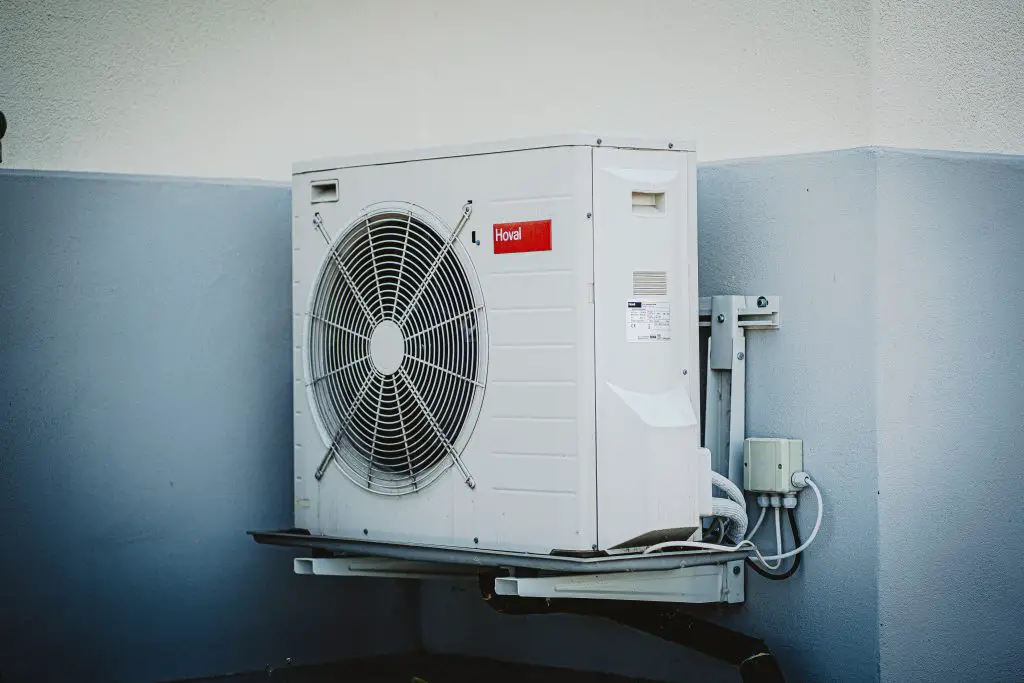
Summary – are air source heat pumps noisy then?
To sum up, we have seen that it is possible for heat pumps to be installed in such a way that they don’t make unacceptable noise. Bear in mind the points below for the best outcome.
- Provided you go for one of the well-respected brands and have your heat pump installed by a professionally qualified technician, you should have few problems.
- Make sure you install your heat pump away from bedroom windows and neighbouring buildings.
- Make use of enclosures to mitigate any sound whilst also giving a more pleasing aesthetic and protecting your heat pump from the elements.
Check out our list of installers to help find one serving your area.